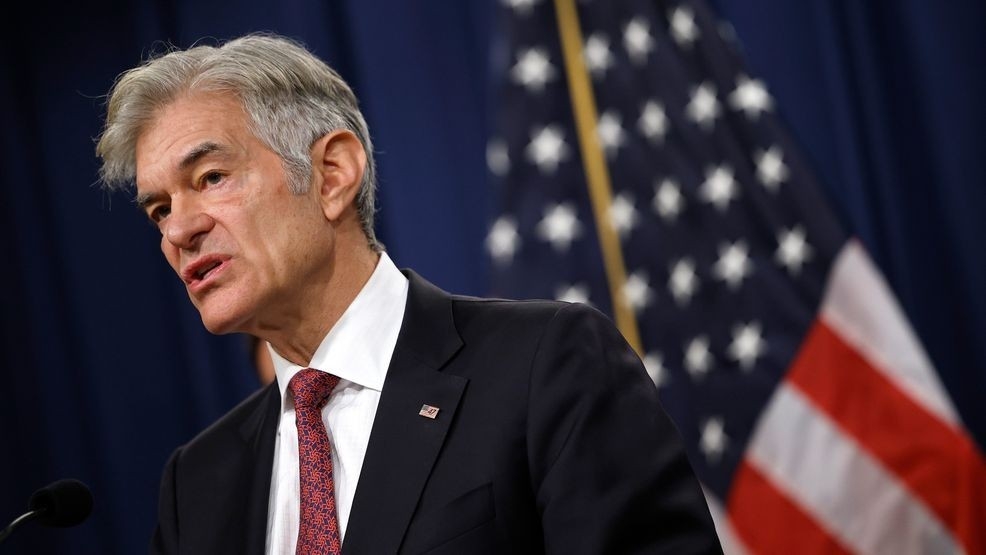Description
(TNND) — Americans are still in a sour mood over the economy, with tariff concerns weighing on their minds, said the woman in charge of the University of Michigan's long-running consumer sentiment survey.
Joanne Hsu, the survey’s director and chief economist, said Americans are worried President Donald Trump’s tariffs will fuel a resurgence of inflation.
“And they continue to have pretty downbeat expectations for labor markets, as well as their own incomes,” she said Friday.
Hsu and the University of Michigan released preliminary consumer sentiment survey results for July.
Their consumer sentiment index reading came in at 61.8, which is a five-month high.
But it’s well below its historic average.
And it’s well below the post-election spike of 74 in December.
The University of Michigan’s nationwide survey asks people about business conditions, buying conditions and personal finances. They take the economic mood of the country, and they’ve been doing so for decades.
For context, the reading only dipped below 90 once in the three years before the pandemic. The reading hit a record low of 50 in June 2022, at the peak of pandemic-induced inflation.
But the consumer sentiment index got close to the record low in April and May of this year as Trump ramped up his tariff plans.
Trump announced a slew of country-specific tariffs in early April. Those tariffs were paused a week later so the administration could negotiate more favorable trade deals with other countries.
But Trump maintained a 10% baseline tariff on most countries, with higher tariffs on China, Canada, Mexico and on some products.
The Budget Lab at Yale says Americans face an overall average effective tariff rate of 20.6%, the highest since 1910.
The University of Michigan’s consumer sentiment index bumped up from 52.2 in May to 60.7 in June and then 61.8 so far in July.
Hsu said that consumer worries eased as tariff announcements slowed down.
“With April and May, consumers had been worried that there could be some catastrophic consequences to come,” she said. “I think that it looks from the data that consumers are no longer as fearful of the worst-case scenario, but they are still quite worried about potential risks to the economy if ... trade policy continues to have high tariffs or uncertain tariffs that will make it difficult for businesses and consumers to plan.”
Hsu said the difference between the 60.7 June reading and the preliminary 61.8 July reading is insignificant.
The mood of the American consumer hasn’t changed now for a month and a half.
The decline in mood from the end of the year has been seen across demographic characteristics, Hsu said.
“Across the board, we are seeing broad agreement that the outlook for the economy has soured over the course of 2025,” she said. “And it looks better in July but still far below what we were seeing in December (and) January.”
Year-ahead inflation expectations fell for a second straight month but remain elevated at 4.4%.
Year-ahead inflation expectations were 2.9% a year ago.
Actual inflation, as measured by the consumer price index, is 2.7%.
That June inflation figure was reported earlier this week and came in higher than the May figure at 2.4%.
RELATED STORY: Tariffs starting to show up at the store? New report shows inflation rise
Also this week, the producer price index for June came in lower than it was in May.
The June PPI was 2.3% after it was 2.7% in May.
Colorado State University economist Stephan Weiler said the PPI is like a “wholesalers gate” without the retailers’ margins added to the price.
And he said it can be somewhat of a leading indicator.
But Hsu said Americans are bracing for higher inflation.
And those fears are solidly tied to tariff policy.
Hsu said 60% of consumers in her survey spontaneously provided unsolicited comments on tariffs.
It was clear that was the No. 1 issue on consumers’ minds.
Passage of the “One Big Beautiful Bill Act,” Trump’s key tax and policy legislation, “did not really move the needle,” Hsu said.
“It was less than 10% of consumers who mentioned anything related to the bill,” she said. “And we searched pretty exhaustively for not just ‘One Big Beautiful Bill,’ tax and spending bill, tax cuts, we looked for references to even specific spending cuts or specific tax cuts, and it was less than 10, much less than 10% of consumers, who said anything about that.”
Other Related News
07/18/2025
ALBANY Ga WALB - Join WALB on Wednesday July 23rd from 10 am to 2 pm at Pet Supplies Plus ...
07/18/2025
WALB is working to produce a video for this story In the meantime we encourage you to watc...
07/18/2025
ATLANTA AP Georgias governor on Thursday announced the appointment of a new justice to fi...
07/18/2025
TNND Health and Human Services said analysts have found nearly 3 million Americans who mi...
07/18/2025









